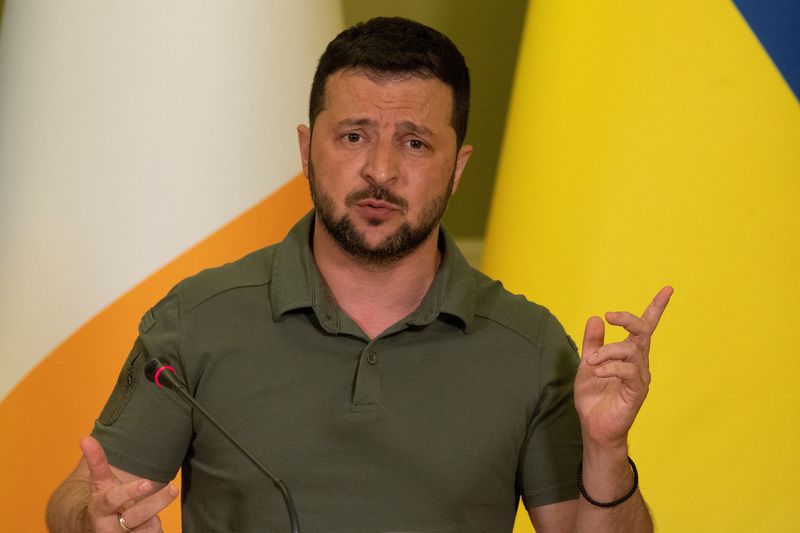KYIV (Reuters) - Ukrainian President Volodymyr Zelenskiy urged his government on Thursday to keep a tight rein on spending in wartime, in a call that resulted in his culture minister, a proponent of several high-profile and costly projects, offering his resignation.
"In a time of war like this the maximum amount of state attention and therefore state resources should go to defence," Zelenskiy said in his nightly video address, referring to a conversation he had earlier with Prime Minister Denys Shmyhal.
He told Shmyhal to find alternative funding for projects "that are really necessary. This applies to various areas, including culture. Museums, cultural centres, symbols, television series are important, but we have other priorities."
Zelenskiy, who was a television comedy star before entering politics, said he had appealed to local councils to show restraint so that "people feel that budget resources are used fairly and correctly...Cobblestones, city decorations, fountains will have to wait. Victory first."
And he asked Shmyhal to "consider replacing" Culture and Information Policy Minister Olexander Tkachenko.
Within an hour, Tkachenko said he had tendered his resignation, while remaining unapologetic about his projects.
"Culture in wartime is important as this war is not just about territory but also people - our memory, history, language and creativity despite the war," Tkachenko, who headed a television channel before entering politics, wrote on Telegram.
"Private and state funding for culture in wartime is no less important than for drones. Culture is the shield for our identity and our borders."
There was no word on whether his resignation had been accepted.
A high-profile public figure, Tkachenko had earlier in the day defended the allocation of the equivalent of $13.5 million to complete a museum devoted to Ukraine's man-made 1930s famine linked to Soviet dictator Josef Stalin's collectivisation drive.

He had also promoted a project, which he said was privately funded, to replace the Soviet-era coat of arms emblazoned on the shield of the 102-metre (335-foot) tall "Motherland" statue of a woman standing just outside the city's World War Two museum.
Tkachenko had also promoted films and television programmes linked to the war against Russia.